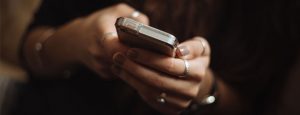Over the holiday break, I found myself immersed in a discussion pertaining to the definition of shopping. “What is shopping?” a fellow friend in shopper marketing asked. Obviously, we both agreed that picking up milk at the store or buying a pair of jeans at the mall was shopping. We agreed shopping also consisted of buying goods on Amazon and other online retailers. We even agreed that choosing a mechanic or hair stylist and other such services constituted shopping.
But we differed in opinion related to experiential choices. Do individuals and families “shop” for vacations? Do parents and high schoolers “shop” for a college? It was a good debate. Well, this past week I came across two interesting articles that add to the question — Do we “shop” for experiences? And do we “shop” for relationships?
First, Good Magazine, using data from YourMorals.Org, argues that persons who buy experiences are more satisfied, less anxious, less depressed and in better mental and physical health than persons who buy material things.
Second, I read about Andrew Hyde who only owns 15 things. That’s right. 15 things total.On the topic, he stated, “This whole experience has taught me something very simple: debt kills dreams. Debt is cash, things and fear … I don’t have much right now. 3 shirts, a pair of pants and shorts. Some odds and ends. I do some pretty interesting and amazing things everyday, and not once in the last month did I really want anything more … It has turned my life from stuff centric to relationship centric.”
Do we “shop” for experiences? Do we “shop” for relationships? For friends? Love? I don’t know if there is a clear answer. Perhaps a good debate worthy of research. In that debate though, the learning from these two brief articles must be taken into account. Buying experiences versus buying material goods leads to more happiness. And, in the case of Andrew Hyde, developing better relationships versus owning materials goods leads to more happiness. So, if we do “shop” for experiences and relationships, it must be a different shopping approach,shopping mindset andshopping process because it leads to a different result.
I present this because, as marketers, we often sell our products, services or retail stores as experiences or relationships. When we do are we applying the same shopping framework that we would for a consumable? Our consumers may not be.

